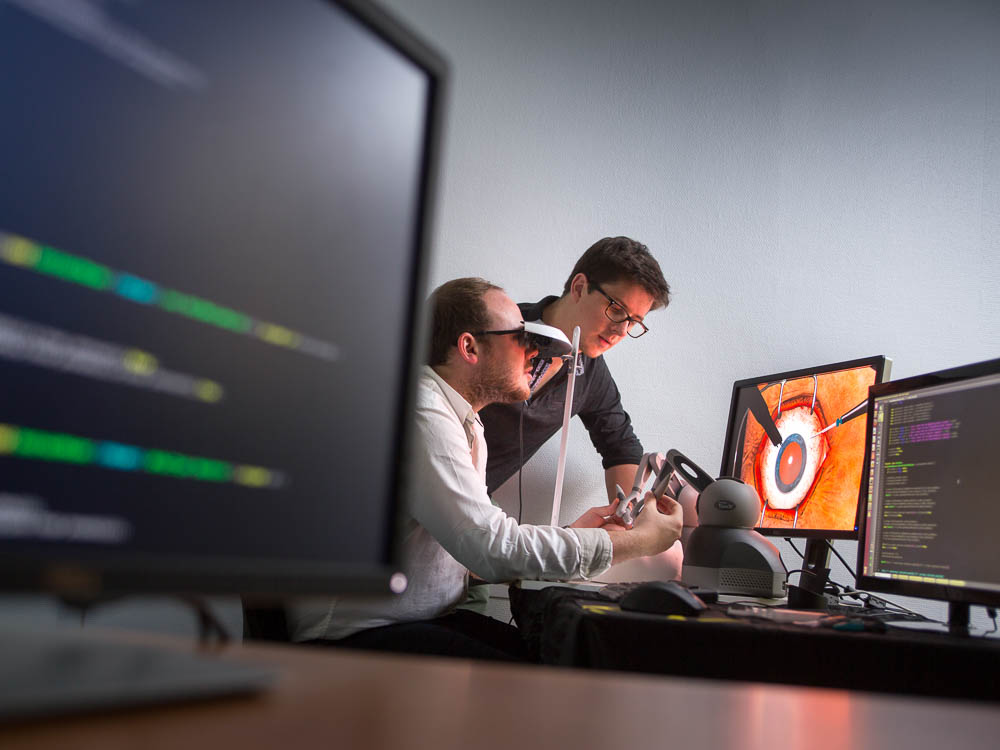
With the aim of developing advanced human capital in digital technologies and in the effort to connect the scientific world, Inria Chile has sent more than 50 Chilean university students to do internships, improve their skills, and develop their applied research with the scientists and technicians of Inria in France.
Inria is the French National Institute for Research in Digital Sciences and Technology and is recognized worldwide for its contributions to R&D, computer science, and applied mathematics. As part of its track record of scientific collaborations with Chilean universities, it hosts engineering students to complete internships in one of its eight research centers in that European country.
With the arrival of Inria in Chile in 2012, the first internships were carried out thanks to Conicyt's "Science and Technology, Short Stays Abroad for Engineering Students" program, and after its end in 2016, through agreements with the Universidad de Chile, the Pontificia Universidad Católica, and the Universidad Técnica Federico Santa María. Five students from each institution are in France for three months, between January and March, working with Inria research teams. Each one receives help for their trip and stay, co-financed between Inria and the university.
Verbatim
I applied for this internship without knowing which Inria team I was going to work with. Then, I chose the topic because of its relation to my career. Once in France, they helped me a lot; they sent me to a mathematical course on differential equations. I worked with two teams, the one from Inria and the one from Gipsa lab. That was very interesting because I was able to see two perspectives, one on modeling and another on automation.
Civil engineering student at the Universidad Técnica Federico Santa María
Dhannai Sepúlveda, a civil engineering student at the Universidad Técnica Federico Santa María, explains that she was part of the NECS project-team, with which she worked on differential equations for the control of traffic of autonomous vehicles.
She says that her supervisors were very approachable, explained things well, and she met a good work group that helped her and with whom she felt comfortable. She notes that she is now starting her master's degree in Chile and seeing if she can apply what she learned in her field, which is fluids. She also highlights the English learning she achieved during this internship, which now allows her to read papers and advance much faster in her research.
Sebastián Gallardo, a computer engineering student at the Universidad Técnica Federico Santa María, went to the Inria Sophia center to work with the BIOVISION project-team, which studies the retina and the visual cortex. There, he supported a doctoral thesis on the movement made by the retina and the visual cortex when predicting the displacement of objects, adapting a mathematical model to make simulations in Inria's Macular software.
He says that he felt integrated with the team, which was intercultural, with a French person and people from Greece, Taiwan, Germany, and other countries; among them, there were master's, doctoral, and postdoctoral students. He felt that he contributed because the team was more focused on neuroscience and not as close to the software and algorithm part, which he contributed.
Verbatim
It was useful for me professionally; I learned a lot, made connections, and I am still in touch to this day. I am also doing my thesis project on a parallel project to the one I did there.
Computer civil engineering student at the Universidad Técnica Federico Santa María
At Inria in Chile, these programs are considered a success and have received very positive evaluations from both the students and the Inria research teams that hosted them.
Verbatim
All these students participated in research projects; several contributed to scientific publications during their internship and stayed in touch with the teams after their return to Chile. Some even joined doctoral programs in France as a result of this experience.
CEO Inria Chile
Nayat Sánchez-Pi explains that they will continue to promote this student mobility program from Chile to Inria in France because it provides students with "the opportunity to gain experience from the beginning of their studies in an international research center and perhaps encourage more of them to pursue research in the future," she assures.
